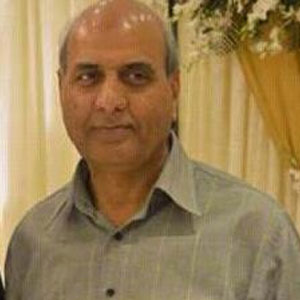In a controversial move, the Indian Supreme Court (ISC) has dealt a severe blow to justice by endorsing the Narendra Modi government’s decision to abrogate the special status of illegally occupied Jammu and Kashmir. This endorsement, rather than upholding the principles of justice, aligns closely with the political agenda of the RSS-BJP regime, evident in the saffronization of the Indian judiciary.
The Indian Supreme Court is vividly advancing the Hindutva narrative championed by Prime Minister Narendra Modi. The intent behind this move is clear: to erase the distinct identity and Muslim character of IIOJK.
The fact of the matter is that the judgment is not surprising at all in light of the Indian judiciary’s historical decisions against Muslims, as seen in cases such as Babri Masjid, Samjhuta Express, and the Naroda Gam massacre during the 2002 Gujarat riots. This pattern has allowed religious places like mosques and churches to be converted into temples, infringing upon the minorities’ right to freely practice their religious rituals.
The judicial endorsement of India’s unilateral and illegal actions of August 5, 2019, is another travesty of justice based on distorted historical and legal arguments. Caretaker Foreign Minister Jalil Abbas Jilani strongly rejected the decision, emphasizing that the restoration of statehood or State Assembly elections cannot substitute the right to self-determination for the Kashmiri people.
It is crucial to underscore that this verdict holds no weight in altering the internationally recognized disputed status of the territory. Kashmir was, is and will remain a disputed territory until the Kashmiri people exercise the right to self-determination promised to them by the UN Security Council resolutions. The Indian government or any of its courts lack the authority to change the disputed nature of Jammu and Kashmir,
Also, the Kashmiri people will never accept or surrender to the Indian oppressive tactics. Even pro-Indian Kashmiri leaders have expressed disappointment with the judgment. National Conference Vice President Omar Abdullah remains undeterred, stating, “Disappointed but not disheartened. The struggle will continue.”
Peoples Democratic Party President Mehbooba Mufti in a message on Twitter, said people of Jammu and Kashmir will not lose hope or surrender their rights. She said that they would continue their struggle for the restoration of their honour and dignity. She added that the Indian Supreme Court’s verdict was not the end of the road for them. These sentiments echo the steadfast resolve of the Kashmiri people, who adamantly reject any decision imposed by the Indian government or its judiciary.
The fear now is that the Modi government will intensify its oppressive tactics in IIOJK to fulfill its sordid designs in the occupied territory. This may include accelerating the settlement of the Hindu population, in violation of international laws and Security Council resolutions, and perpetuating blatant human rights abuses.
It is imperative for human rights organizations to advocate vehemently for the Kashmiri people, urging the international community to intervene and prevent India from violating international laws. Recent events, such as the killing of a Sikh leader in Canada and a thwarted plot in the US, vividly illustrate the cruelty of the Modi government. With a substantial military presence of nine hundred thousand troops in IIOJK, the potential for further abuses is alarming.
Pakistan must actively voice its concerns at various international forums and in bilateral meetings with influential leaders. India’s attempts to suppress the legitimate struggle of Kashmiris through political manipulation and a compliant judiciary must be brought to the forefront of global discourse for a fair and lasting resolution to the Kashmir conflict.
In addition, Muslim leaders should step forward and amplify their voices in support of the oppressed Muslim population in IIOJK. Their collective influence can contribute significantly to raising awareness and garnering international support for the legitimate rights of the Kashmiri people.























